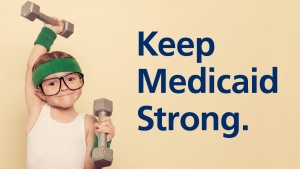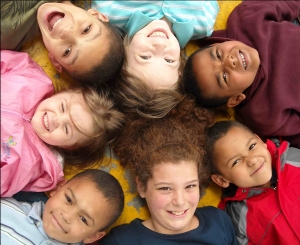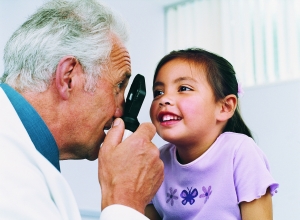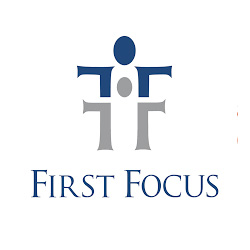CHIP
July Kids’ Coverage Roundup
Updates on kids coverage in Utah: Kids are losing Medicaid/CHIP coverage, meanwhile Utah is still paying more to cover fewer people…and more!
Why are Utahns paying more to cover fewer people?
Under Utah’s current partial expansion plan (aka the “bridge plan”), Utah is paying 30% more to cover thousands of fewer kids and families on Medicaid. To date, around 34,000 new individuals have enrolled in Medicaid coverage, although at least 50,000 still remain in the gap, unable to afford coverage on their own and not offered it through their job. Utah has left at least $7 million in federal funds on the table so far-- funds that could be used to help more families get coverage and care. (New update: latest reports state the Trump administration will reject Utah's partial expansion. It's time to stop paying more to cover fewer people.)
Alarming Trend in Kids' Medicaid/CHIP Coverage
Utah kids are dis-enrolling from Medicaid/ CHIP at an alarming rate. At the July Utah Medicaid Advisory Committee meeting we learned that over 2,000 kids lost Medicaid/CHIP coverage last month. Such a steep drop cannot be explained by a strong economy alone. The number of Utah kids leaving CHIP/ Medicaid are among the highest in the nation. Both the Utah Department of Health and Department of Workforce Services have committed to doing additional investigation as to WHY kids are losing coverage. We greatly appreciate that they are taking this issue seriously and are working to find answers.

Utah Medicaid Advisory Committee Once Again Prioritizes 12-Month Continuous Eligibility- Let's Keep Kids Covered!
For the third straight year, the Utah Medicaid Advisory Committee prioritized 12-month continuous eligibility for children on Medicaid as one of their top funding requests to the Governor. 12-month continuous eligibility would allow more kids to get covered- and stay covered. Current Medicaid reporting requirements mean many kids unnecessarily lose coverage, with cascading negative impacts. This policy would protect kids and families. The Utah Medicaid Advisory Committee has continually prioritized this as a cost-effective, best practice to keep kids healthy, consistently voting in favor of the Utah Department of Health adopting this policy.
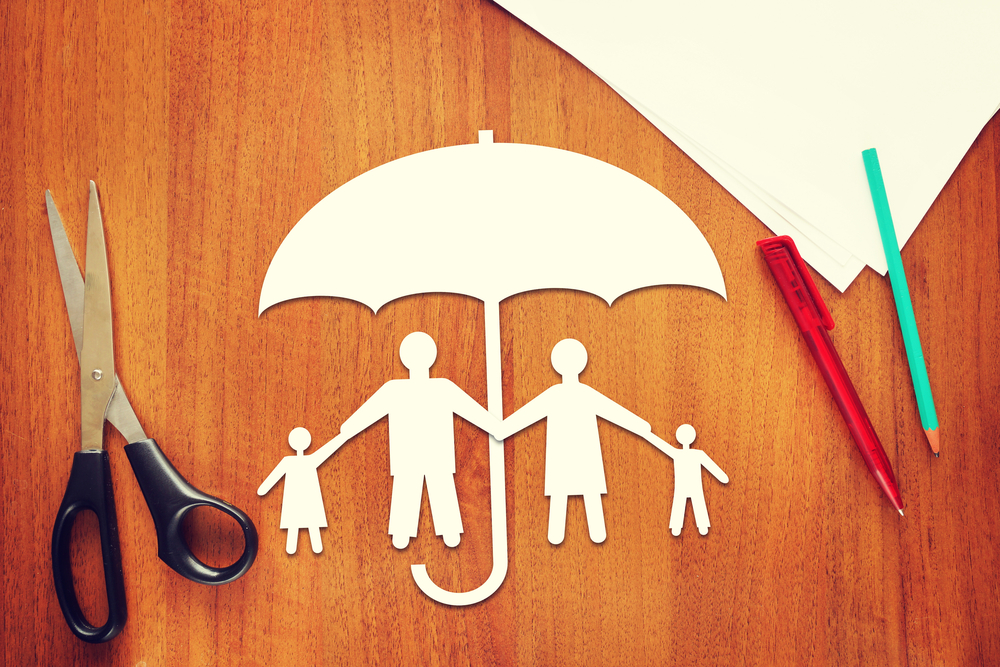
The Latest on Utah’s Medicaid Waiver
Utahns submitted a record 1,700 comments on Utah’s partial Medicaid expansion. Thanks to all who stood up for voter-approved full Medicaid expansion. Utahns voiced strong opposition to the proposed cuts, caps and barriers to Medicaid coverage which would leave many kids and parents without coverage or care. These comments send a message to state and federal officials and will provide the backbone for any future legal action.
Haven’t submitted a comment yet? There’s still time! Submit a comment here: www.utahchildren.org/comment

2019 Utah State of Children's Coverage Report, 100% Kids: Giving All Kids the Opportunity to Thrive
Report: 2019 UTAH STATE OF CHILDREN’S COVERAGE REPORT 100% Kids: Giving All Kids the Opportunity to Thrive
Executive Summary
Health insurance coverage provides children with the foundation they need to be healthy and thrive. When children have health insurance, they have better health outcomes, greater academic success and more economic opportunities later in life.
Utah lags behind the rest of the nation when it comes to covering kids. In Utah, 7% of all children are uninsured, compared to 5% nationally. While Utah has made significant strides over the years connecting more children to coverage, in the last year, Utah’s child uninsured rate has increased. In 2017, Utah was one of only nine states to see its child uninsured rate trend in the wrong direction.
Who are the uninsured children of Utah? They are overwhelmingly low-income. Typically, their parents are uninsured too. The majority are eligible for CHIP or Medicaid insurance, but not enrolled. Some are not eligible for insurance at all because of their citizenship or immigration status. They live across Utah, with a higher percentage of uninsured children living in rural areas. Some children may have never been insured; some may have had insurance and then lost it or had a parent dis-enroll them due to stigma or fear of enrolling in public health insurance programs. They come from all racial and ethnic backgrounds however, a disproportionate percentage of uninsured children in Utah are Latino, the highest in the nation. Some come from families experiencing intergenerational poverty, some are immigrants, refugees or asylum seekers, facing steep obstacles to their health and well-being.
But no matter who they are, they are all Utahns. When 7% of our child population lacks health insurance, we put Utah’s future at risk. Utah is at a unique moment to challenge the negative trends and demand that all children, no matter their background, zip code, citizenship or immigration status, can access affordable health coverage.
The 100% Kids Coverage Campaign is led by a diverse coalition of stakeholders. This multi-year campaign has a goal of ensuring all Utah children will have coverage. Guided by four over-arching policy recommendations, the Campaign proposes to change Utah’s health coverage landscape:
- Strengthen and protect Medicaid coverage for parents
- Keep kids covered all year round
- Support consistent outreach and enrollment support
- Cover all kids, regardless of background or immigration status
Through targeted policies, political and community engagement, we can ensure that all Utah kids have the health coverage they need to grow, thrive and succeed in life. We believe that it is possible for 100% of Utah children to have access to affordable, consistent health coverage. We invite you to join us and help us reach 100% together.
The full report can be downloaded below. For a free print copy please call Voices at 801-364-1182
100% Kids Coverage Campaign & Coalition Launch
100% Kids Coverage Campaign & Coalition Launch
Giving All Kids the Opportunity to Thrive
FOR IMMEDIATE RELEASE
Wednesday, May 22, 2019
CONTACT:
Ciriac Alvarez Valle
801-364-1182
Salt Lake City —A coalition of over 20 diverse stakeholder organizations will announce a campaign aimed at ensuring that all Utah children have health care coverage, regardless of background, geography, immigration status, or income this Friday, May 24that 10 am at the Voices for Utah Children office (details below).
Utah has one of the highest uninsured rates for children in the country. In the last year, Utah was one of only 9 states to see an increase in its child uninsured rate, up from 6% to 7%. Children of color and immigrant children are disproportionately affected, of the 71,000 children without health insurance, almost 43% are Latino children. The Campaign aims to reduce the disparities in coverage and ensure that every child has the ability to access affordable health coverage.
During the launch, Voices for Utah Children will share its new State of Children’s Coverage Report with detailed information regarding Utah coverage, disparities to care and barriers faced by immigrant families. The 100% Kids Coverage Campaign focuses on four main policy priorities: Protecting and fully expanding affordable coverage for parents and pregnant women; keeping kids covered all year round; helping families connect and stay covered; and covering all kids regardless of immigration status. More detailed information about the campaign can be found here: https://utahchildren.org/issues/100-kids-covered.
The report includes several stories and testimonies from immigrant families on the importance of health insurance. “If [our family] had medical insurance, I’d be a calmer woman, with less stress, and more happiness because I’d have my son in his therapies that he really needs,” said one Utah mother in the report.
“Our campaign is committed to ensuring that Utah is a place for all children to grow up healthy, regardless of immigration status,” said Ciriac Alvarez Valle, Health Policy and Community Engagement Fellow for Voices for Utah Children. “We are encouraged to have so many groups come together in support of getting Utah to 100% Kids Coverage.
The Campaign & Coalition Launch will be held on Friday the 24th at 10:00 AM at the Voices for Utah Children Office (747 E South Temple #100).
###
Immigrant Families On Access To Health Care
Immigrant Families on Health Coverage
Thanks to Centro de la Family, the Consulate of Mexico in Salt Lake, Holy Cross Ministries, and Utah Health Policy Project, we were able to survey 34 immigrant families about health care, access to health insurance, what having health insurance or not has meant for them.
The immigrant families surveyed range in location and statuses many families live in mixed immigration statuses from undocumented, legal permanent residents, and U.S. citizens.
From all the surveys, one thing was clear: having access to quality health insurance such as CHIP or Medicaid has made a difference for these families in terms of health, overall wellbeing, and financial security.
“It has meant a lot especially because I have a son with disabilities and a lot of doctor’s appointments.”
“[Medicaid/CHIP] is great, it has made us feel like my children are protected.”
“It brings me peace to know that when my children need medical attention or have an emergency, I have place to take them without being overwhelmed by billing”
“My children have health insurance and I feel good with it because whatever happens I can take them to the doctors.”
These quotes were taken directly from mothers who took the survey and were able to take their children to receive the necessary wellness checks throughout the year for their children and felt the safety net that CHIP and Medicaid provided. This safety net has allowed these families to spend less on health care, access the services they need, and not feel overwhelmed by the health care system. Many of them talked about a feeling of “tranquility” from having access to
For the families that were unable to have access to health insurance the amounts they owed ranged from owing $300-$5,000 in medical bills. 6 families reported their sick children got other family members or other classmates sick, 5 said they caused absences in school, and 4 of them also said an adult at home missed days of work and had to stay home.
One mother said, “Having health insurance for my children has been of great importance to me, I have felt happy to have their physical checks done and my children are very healthy.”
Another mother said, “It helped us during the time that my husband was unable to work, and we had low resources, mi children went to the emergency room and were able to get treatment.”
One mother also talked about the benefits of having health insurance meant her family and her were able to understand the benefits that are much greater than spending less on health care: “I learned that having regular physical and dental check ups that are covered by Medicaid you can reduce the risk of developing serious illnesses and that has helped my family and children a lot.“
Overall the theme remained the same, having health insurance such as Medicaid and CHIP provided relief for all the families that were surveyed. Each of them had different concerns but most of their main concerns were the wellbeing of their children and having the means to pay for their wellness checks. While there is still a climate of fear that surrounds immigrant families, they all had an understanding of the importance of health care and health coverage. Thanks to these vital programs, families can move forward, take care of their medical needs, and take care of their families. With our 100% Kids Coverage Campaign we are hoping to improve coverage and care for all families in Utah! If you would like more information about our campaign, please click here or email !
Together we can work towards 100% Kids Covered in Utah!
A Conversation (Focus Group) with Former Undocumented Children
If you would like to read this blog post offline, please scroll to the bottom to download a copy of the PDF version!
During the third week of November, we held a focus group with Dreamers and children of immigrant parents to discuss what health care looked like while they were growing up. As they undocumented children, children in mixed status families, and in immigrant families they shared the same concerns and understanding of what it meant to obtain health care.
The similarities we heard were:
- using community health centers and learning their limitations
- mistrusting systemic entities like hospitals and government
- the lack of understanding of health care and learning it as adults
- cultural competency from health care professionals
- how care was accessed
Community Health Clinics
One individual mentioned a story of growing up with migraines that touched on the importance of all these pieces especially from obtaining care from local community clinics. She grew up as an undocumented immigrant child and is now a Permanent Resident. She said:
I grew up with migraines and I had them since I was 7. I never knew what they were, and my mom didn’t know what they were either. They would put an onion to my head [as a home remedy to help alleviate the pain]. I didn’t have a primary doctor, and I remember going in a couple of times each time and told them I had pain but, they would give me over the counter Advil. I remember looking at the TV and a commercial about migraines [came on] and they were listing the symptoms like sensitivity to light, the nausea, the severe pain, and I remember going “That’s what I have!” Basically, diagnosing myself and the next time I went to the doctor I told him I was having migraines, but he didn’t prescribe anything but, it really wasn’t until last year that I got an actual prescription because of the stigma around prescription drugs.
Mistrust and Fear
One of the most important pieces highlighted at the end was this notion that “I still have that message engrained in my brain not to trust the system.” A mistrust within immigrant families to seek health care services because of fear. “And fear of course we are still undocumented so its scary to put your name out there…” ‘A[fear] now and since when we were kids. It still hasn’t gone away because I’m still undocumented it isn’t as scary, but [the fear] still doesn’t go away.” Given the climate of fear and hostility that has grown within this last year, these feelings continue to linger with these young adults even as they have integrated into Utah and all have either DACA, Legal Permanent Residency, or are U.S. citizens. This is especially important because of the new Public Charge Rule that may drastically change the way immigrant families seek services, scaring them away from public benefits that they qualify for and fearing that their information may be used against them.
Mistrusting the health care system and giving information was also a major concerned discussed by all participants as one highlighted as they discussed the barriers they faced when their parents sought out services for them as children, “If we don’t have someone we can trust (neighbor, family, friend) we don’t have that accessibility or knowing where to get that information [then we won’t seek health care services]”
Understanding Healthcare
An interesting point was mentioned by a participant about what it has meant to have grown up without health insurance now as an adult. She said, “You don’t know who to really talk to and because you grew up not thinking it was necessary, it really does impact you as an adult” She mentioned feeling like there’s a “big gap of knowledge” that she has been trying to fill now as adult navigating health care. Another person mentioned, “I do think it’s funny that my first physical was at 26” because she is DACAmented and obtained private health insurance from her wife’s plan. This is consistent to other trends that emphasize about health care coverage during childhood is important and just as important is having health care coverage for parents, it is also good for children and the “welcome mat” effect.
Another participant mentioned she worked at a community clinic now and continues to see a trend in the misunderstanding and lack of knowledge when it comes to health care for Latino and immigrant families. She said, most families, call the clinic their medical and dental home even if it might not be. There is a gap between understanding that having a medical home means having the same head doctor every time.
Cultural Competency
The cultural competency piece was important to highlight, because health coverage is only the first step to filling the gaps for health care in Utah. One participant mentioned that “[it] doesn’t feel like a welcoming place” even now as adults” and “frustration with the cultural knowledge of health care providers where they make assumptions based on my background.” Even as adults many of these feelings still linger from childhood and now that they understand, are much better able to advocate for themselves within the healthcare system.
How care was accessed
A reoccurring theme throughout the conversation was the amount of times “our moms were our doctors. Where many of them recall their mothers giving them traditional home remedies and not taking medications until necessary. The six participants mentioned they grew up without a head doctor and without regular wellness check-ups unless they were done within a school setting.
100% Kids Coverage Campaign
Each of the six participants gave so many examples of what it was like growing up without health insurance and the barriers they continue to face today because they didn’t grow up understanding the importance of health care with regular check-ups, how to use insurance, and navigating health care in places that don’t always feel welcome.
This focus group gave insight on the difference that health insurance would have made for each of them as children. We hope that more children can access care with our 100% Kids Coverage Campaign. Join us to make sure more young people can access the care they need and can grow up to be the thriving adults they are meant to be.
Ciriac Alvarez Valle
Health Policy and Community Engagement Fellow
Voices for Utah Children
100% Kids Covered: Patricia and Sara the Dreamers
Patricia and her family moved to Salt Lake City, Utah when she was fifteen after living in Texas for a couple of years. She attended West High School and is now an undergraduate at the University of Utah. She and her sister are two of thousands of undocumented immigrant youth living in our state with a lack of access to health care.
She told me, “Health is the most important. If we do not have health, we do not have anything.”
As she attended high school, she was not able to get her regular health care checks. This year was the first time she became ill. She got food poising for two weeks and couldn’t attend her classes for a week at the University of Utah. Her mother ended up taking time off work to take her to the emergency room. This wasn’t the first time they needed to take someone in their family to the emergency room.
About three years ago, her younger sister, Sara, got a urinary track infection that became a life or death situation. They rushed to the emergency room because the infection had spread to her kidneys. Her mother took of a couple of days off work to be with her. Sara also missed days at school because of this. They racked up over $4,600 in medical bills because of this; bills that they are still paying off.
Fortunately, their youngest brother qualified for CHIP. He has been able to attend his wellness checks, stay up to date with his vaccinations, and when he needed stitches, their parents could afford to take him to the hospital.
Patricia and Sara deserve access to health care like all other children and youth in our state. With health insurance, they would have been able to obtain preventative care and saved their family from going to the emergency room.
Join our 100% Kids Coverage Campaign to ensure that all kids have access to health coverage regardless of immigration status! Young people like Patricia and Sara deserve the opportunity to reach their full potential.
100% Kids Covered: Karina the Dreamer
Karina is a Dreamer who was born in Puebla, Mexico. Her family immigrated to the U.S. when she was twelve years old. She is now eighteen, a first-year student at Salt Lake Community College, and is studying to become a Physician Assistant. I was able to chat with her about her experience with health care and learn from her first-hand experience to what it was like to grow up without health insurance because of her immigration status.
She has one younger sister who is currently sixteen and a Sterling Scholar at her high school. She told me that her sister had a leg injury last summer after jumping off a cliff into a lake. She recalls her mom being so scared of the bill “its so much money, its so much money” because they thought they had to go to the emergency room. Luckily, they were able to go to an urgent care clinic where their bill of $800 went down to about $100 from charity care that they received. She said her sister and her grew up going to Community Health Clinics to obtain care. She said it was affordable to receive her shots, but there were a lot of limitations.
She said, “It definitely had affected me. Like I want to get a general check and I only go to the doctor when I feel bad. It’d be nice to go when I don’t have an illness instead of going when I have something [going on physically].” She mentioned that while the care in community clinics were helpful, she recognized the care was not the same as if she had health insurance. She would much rather be able to obtain preventative health care instead of only when its medically necessary. Her hopes are to continue helping her community and offering her services some day to those in need. Our campaign aims to ensure that children like Karen obtain health care coverage. Will you join our campaign to ensure that children like her are able to obtain adequate health care throughout their youth so they can reach their full potential? Join us today!
New Report Finds Utah’s Child Uninsured Rate is Moving in the Wrong Direction: More Kids in Utah are Uninsured
Why it’s happening and what we can do to counter the trend
A new report finds that Utah’s uninsured rate for children is increasing. In fact, the analysis shows the growth rate of uninsured kids in Utah is among the highest in the nation.
This is according to a new report by the Georgetown University Center for Children and Families. According to the report, the number of uninsured children nationwide increased by about 276,000 children last year, the first significant increase in a decade. An estimated 3.9 million children were uninsured nationwide in 2017.
Utah saw one of the nation’s greatest increases in the kids’ uninsured rate, with about 71,000 or 7.3 percent of children uninsured in 2017. That’s up 12,000 children, about a 20% increase in the number of uninsured children from 2016.
So Why Are Moving in the Wrong Direction?
The report points to a few reasons for this alarming change.
- Medicaid expansion- or lack of it: States that did not expand Medicaid saw the sharpest decline in coverage between 2016 and 2017. The good news for Utah is that voters PASSED Proposition 3, the ballot initiative to expand Medicaid. But we have not yet begun enrollment (although state leaders are working towards an enrollment date of April 1, 2019).
- Federal changes to the marketplace, delays in CHIP funding: As families grapple with enrollment options for their children, the federal confusion around the ACA health insurance marketplace, and cuts to outreach and navigator funding, makes it harder for families to learn about their health insurance options. In addition, last year’s long delay in CHIP funding likely furthered the confusion. This may have caused families to not enroll or re-enrolled their child in this critical healthcare program.
- Federal policies targeting immigrant communities and deterring enrollment: The federal government is creating a climate of fear for many immigrant communities, which is deterring many families from signing up for programs that they can- and should- be eligible to receive. Trump administration proposed policies and rule changes, like the proposed ‘public charge’ rule, are having a chilling effect, sending harmful, unwelcome messages that hurt our immigrant families.
What Can We Do to Reverse the Trend?
- Implement Medicaid expansion and the voter’s will- without delays, without any restrictions, or additional barriers or requirements for enrollment or care: Making sure that Medicaid expansion begins by the anticipated April 1st deadline is one of the most effective ways to counter this trend. When parents have health insurance coverage, they bring their children along. Utah already has one of the highest rates of children eligible for CHIP and Medicaid, but not enrolled. States that expanded Medicaid in the past saw more parents and children receive health coverage.
- Keep kids covered by simplifying eligibility and enrollment processes: Once a child is enrolled in CHIP or Medicaid, we need to make sure they stay enrolled, and do not lose health insurance coverage due to unnecessary administrative red-tape or errors, unexpected changes in status or changes. Sometimes just picking up a one-time extra shift at work can cause a parent to lose insurance. These unnecessary disruptions are also contributing to Utah’s high child uninsured rate. We need to simplify eligibility and enrollment processes now so that qualifying kids can get covered- and stay covered.
- Counter the climate of fear affecting our immigrant families: We need to send a clear message that policies targeting immigrant families hurt everyone. Submit comments opposing the proposed ‘public charge’ rule. And tell your representatives and state leaders that you want a Utah where all families are welcome and should be able to get the healthcare they need to thrive.
Through sound policies and education we can begin to reduce this increase in our child uninsured number. Together we can get Utah kids’ coverage back on track so that 100% of Utah kids have health coverage!
100% Kids Covered: Medicaid and Cristina’s Four Children
Cristina and her four children live in West Jordan, Utah. She shared her story with us about her family and how Medicaid has been able to help her family, except for her oldest, Sofia.
Sofia was born in Mexico and is now a vibrant high school student, she is the only one of her siblings who does not have health insurance because of her immigration status. Cristina worries for her daughter especially because of her vision issues, skin issues, and how often she gets sick with sore throats.
“Because she doesn’t have health insurance, when she gets a sore throat sometimes I take her to the doctors, sometimes I don’t.”
Cristina recalls how Sofia often feels embarrassed and ashamed when her skin condition flares up. Paying out of pocket, often means they spend over $300 for medications when Sofia needs it. In the past year they’ve spent roughly $1,000 paying for her care.
They used to live in Chicago, Illinois where Sofia had access to health care. Illinois is one of six states that has health coverage for all kids. Cristina remembers how much stress it alleviated to have access to care for all her children, including Sofia.
Sofia often asks why her siblings have Medicaid and she doesn’t.
Cristina worries how much not having access to health care has affected her self-esteem, her education, and her relationships in school with other students.
Will you help make sure Sofia, and other children like Sofia can receive access to healthcare? Join our campaign to ensure that all children have access to health care regardless of immigration status or background.
Sofia and Cristina live in Salt Lake County, Utah. Their real names have been omitted.
100% Kids Covered: How Medicaid & CHIP Helped Angela's Family
Angela and her family are one example of how both Medicaid and CHIP can have positive impacts on families after so much misfortune:
Angela has lived in West Valley City, Utah for the past 17 years and is the mother of four beautiful children. She underwent a cesarean section during the birth of her last child and unfortunately suffered from several complications. The infection and pain became so severe and overwhelming that she became bed bound for three months and was forced to leave her job. This was a difficult time because she lost health insurance for her children and herself. Her partner was also forced to leave his construction job to care for her and her children. During that time, Angela and her family underwent an immense financial crisis.
They lived off their savings to meet their basic familial needs but, Angela recalls
“But perhaps the more painful thing was, that my children no longer had health insurance. I lived scared every single day hoping and wishing that none of them would get sick, that none of my children had a medical emergency because there would be no way my partner or I would be able to cover the costs of medical care.”
She realized she needed support and applied for Medicaid to guarantee that her children had access health care, and all four children were able to obtain coverage. Almost immediately, the financial strain lessened, and Angela was able to take her children to their regular check-ups and keep them up to date with immunizations.
After her husband returned to work, her children were enrolled into CHIP.
Thanks to both Medicaid and CHIP Angela’s children were able to obtain health coverage during their financial hardships and get back on their feet. These programs are essential for families like Angela’s.
Will you join our campaign to ensure that these programs are protected and supported? We want to ensure that all children have health insurance regardless of income, background, or location. For more information click here.
Angela lives in Salt Lake County, Utah. Angela is not her real name.

